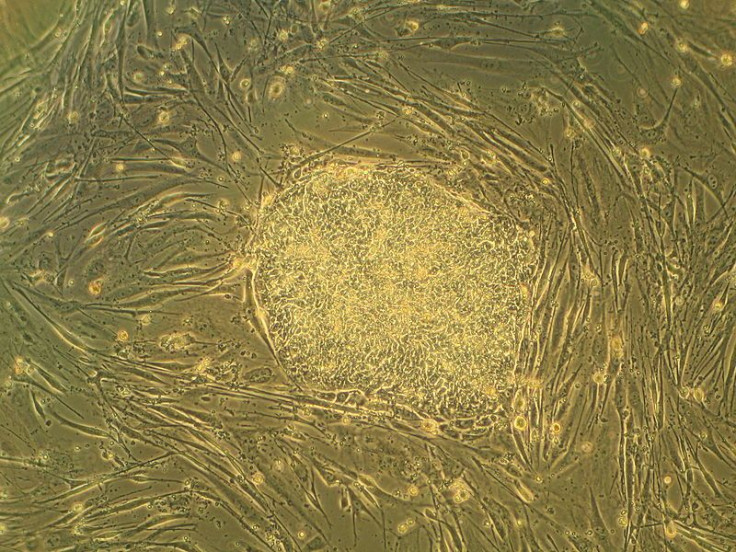Counterfeit Stem Cell Treatments Sold To Vulnerable Patients Willing To Try Experimental, Possibly Dangerous Therapies

People are falling for counterfeit stem cell treatments despite the fact that these 'therapies' have no proven medical value and may even be dangerous, The Irish Times reports. Worse, these fake treatments may cost well above €100,000 (about $132,000), according to Dr. Massimo Dominici, president elect of the International Society for Cellular Therapy. He and other researchers speaking at the British Science Festival issued a strong warning about therapeutic traps set for people with incurable or degenerative diseases; in particular, Dominici highlighted bogus therapies based on mesenchymal stem cells.
Real Or Fake?
Within the first few weeks of embryonic growth, three germ layers develop from which all organs and tissues originate. Derived from the mesoderm (middle embryonic layer), “mesenchyme” is a type of undifferentiated connective tissue that eventually forms muscle, bone, and the urogenital and circulatory systems. Mesenchymal stem cells (MSCs) are considered by some to be a type of stem cell, though many believe applying the term ‘stem cell’ to mesenchymal cells is inaccurate as there is incomplete evidence to demonstrate their abilities.
In any event, MSCs can be expanded in vitro and, under appropriate conditions, can give rise to several cell types, including bone and fat precursors. Scientists have noted that such in vitro-expanded cells not only have outstanding immunoregulatory properties but also affect tissue repair. Because of this — as well as the fact that MSCs can be harvested from a patient, removing the need for a donor — their potential use in therapeutic medicine is being studied worldwide. Still, the science is not yet conclusive. Effective, safe treatments may be a long way off, according to researchers speaking at the British Science Festival, and unfortunately vulnerable patients are being fooled in the meantime.
Other scientists agree with this assessment of the current medical landscape. According to the New York Times, legitimate doctors, such as Dr. Hesham Sadek of the University of Texas Southwestern Medical Center in Dallas, worries people cannot tell which treatments in the area of stem cell or regenerative medicine are real or fake, because patients are inundated with false stories and marketing campaigns from swindlers — who may also happen to be credentialed doctors. Add to that the growing use of medical tourism, where patients travel to less developed countries in order to obtain lower-cost treatment. Vulnerable patients, who want to save their lives, may increasingly encounter medicine considered illegal (or simply unethical) in their own countries.
Stem Cell Tourism
In a 2010 paper published in Cytotherapy, researchers estimated that 750 000 Americans traveled for medical tourism in 2007; they projected this number to increase to 1.6 million patients by 2010. Patients Beyond Borders posts a more conservative estimate on its website, calculating some 900,000 Americans willing to travel outside the U.S. for medical care during 2013.
Globally, many countries offer cell therapies to international patients, especially those in southeast Asia. Unfortunately, one of the main drivers of stem cell tourism may be you reading this very article — “enormous media attention given to cellular and stem cell therapy research in recent years has convinced many that it is worthwhile to do so,” wrote the authors of the white paper. Because regulation, safeguards, and law enforcement vary globally, the authors call for more regulatory harmonization in the field of cellular therapy.
And now it has arrived.
To help patients separate the wheat from the chaff, the International Society for Cellular Therapy has published a Patient Advisory for Stem Cell Therapy and Medical Tourism. Crafted by professional societies dedicated to advancing cell and gene therapy, the statement is intended to outline ‘best practices’ to assist patients and their families when making decisions about health care. Specifically, it is intended for those patients who are contemplating cell therapy or experimental stem cell procedures.
Though stem cells may very well be the future of medicine, such treatments have not yet been proven effective or safe. In the meantime, reputable scientists want to help understandably vulnerable patients decide which treatments may be a waste of precious time and money — or worse, a danger to their lives.
Sources: Gunter KC, Caplan AL, Mason C, et al. Cell therapy medical tourism: Time for action. Cytotherapy. 2010.
Sarugaser R, Hanoun L, Keating A, Stanford WL, Davies JE. Human Mesenchymal Stem Cells Self-Renew and Differentiate According to a Deterministic Hierarchy. PLOS One. 2009.
Published by Medicaldaily.com



























